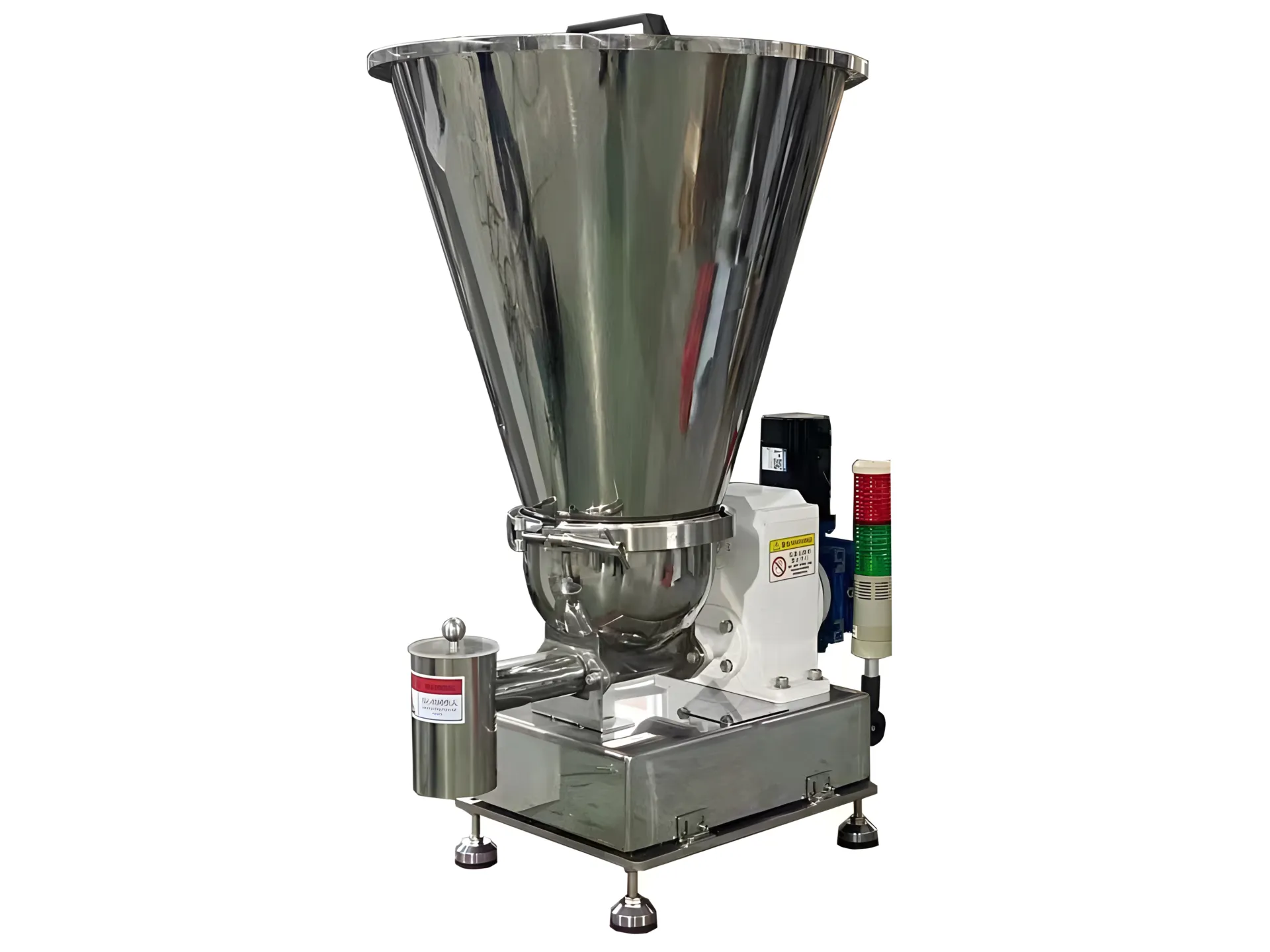Industries worldwide—from petrochemicals to pharmaceuticals—rely on feeders to control the flow of bulk materials in their processes. However, the behavior of dry bulk solids varies significantly depending on their chemical and physical properties, making material handling a complex challenge. This guide explores how understanding material characteristics and choosing the right feeding technology can improve process efficiency and product quality.
Understanding Material Behavior in Feeding Applications
Dry bulk solids such as powders, pellets, and granules each present unique challenges based on their properties. Key factors influencing material flow include:
- Particle Size and Shape: Determines flowability and packing behavior.
- Bulk Density and Compressibility: Affects feeder performance and consistency.
- Moisture or Fat Content: Influences cohesion and stickiness.
- Environmental Impact: Exposure to humidity or pressure can lead to compaction or water absorption.
These factors highlight why no single feeder design can address all material challenges.
Tailoring Feeding Solutions to Material Challenges
Easy-Flowing Materials
Materials like plastic pellets, granules, and flakes are the easiest to handle. They are best managed using:
- Single Screw Feeders: Available in various sizes and geometries to suit specific needs.
- Bulk Solids Pump (BSP) Feeders: Provide exceptional accuracy with a positive displacement action.
- Vibratory Feeders: Deliver gentle and precise feeding.
Floodable Materials
Fine materials like fumed silica and gypsum may flow uncontrollably, behaving like liquids during feeding. The solution?
- Twin Screw Feeders: With interlocking flights to regulate flow effectively.
Difficult-Flowing Materials
Fiberglass, rubber particles, and similar materials require innovative approaches:
- Custom Screw or Vibratory Feeders: Paired with flow-aid devices to enhance discharge control.
Cohesive Materials
Pigments, APIs, and titanium dioxide tend to bridge and cake in hoppers. Effective feeding demands:
- Twin Screw Feeders with Hopper Agitation: Systems like Coperion K-Tron’s ActiFlow™ to prevent clogging.
Fragile and Friable Materials
Delicate materials like food products need gentle handling. Ideal options include:
- Weigh Belt Feeders or Vibratory Feeders: Minimize product damage during feeding.
- Loss-in-Weight Belt Feeders: Ensure precise and gentle handling.
The Role of Feeder Accuracy in Process Success
Feeder accuracy directly impacts recipe integrity, system reliability, and product yield. Choosing a feeder designed for your material and process ensures consistent, dependable performance and economic efficiency.
Internal Resources for Further Insights
For advanced solutions, explore how Rumtoo’s range of feeders and flow aid systems can streamline operations and tackle unique material challenges.



